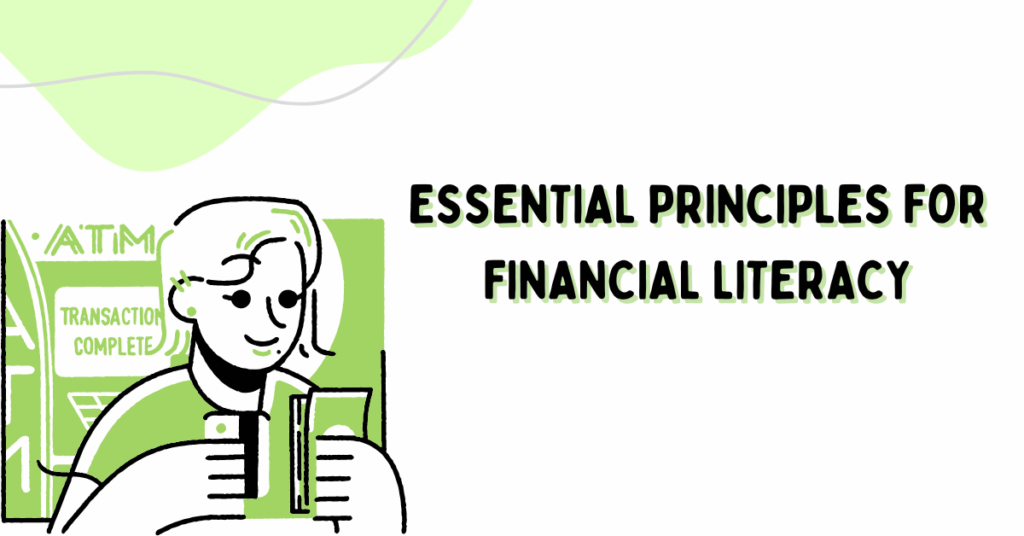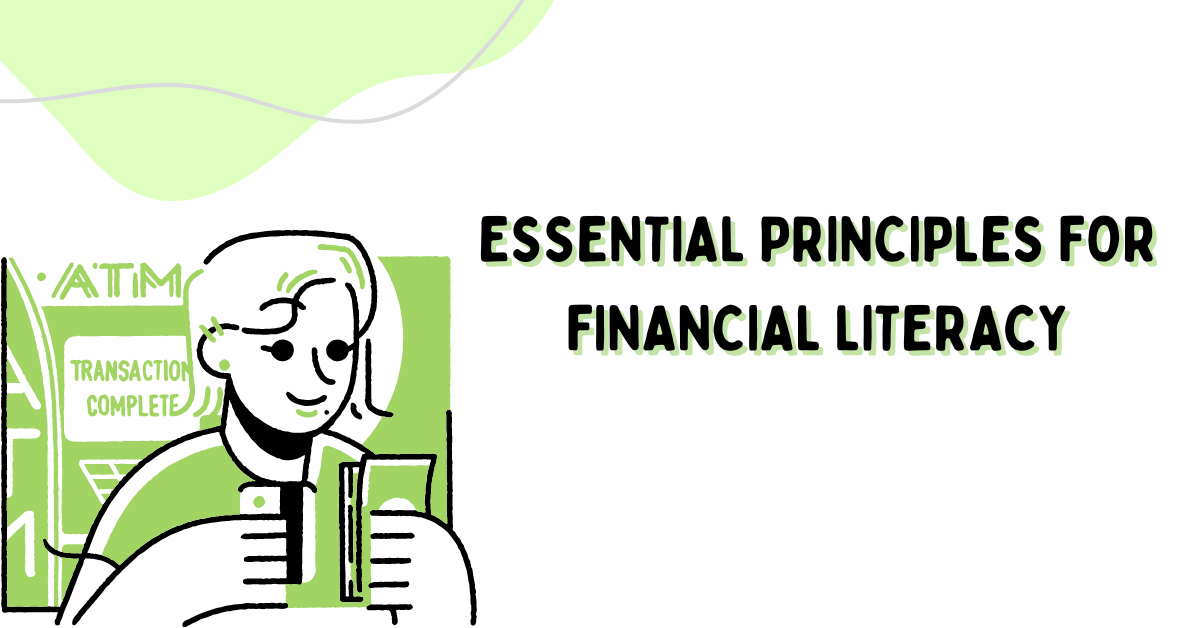Financial literacy is the foundation of sound financial decision-making and long-term financial success. It encompasses a wide range of knowledge and skills essential for managing money effectively, achieving financial goals, and building wealth.
In this comprehensive guide, we will explore the vital principles of financial literacy, providing you with the tools and strategies to navigate the complex world of personal finance with confidence and competence.

Budgeting and Money Management
Budgeting and money management are essential skills for achieving financial stability and success. A well-planned budget is a roadmap for effectively managing income, expenses, and financial goals. By tracking income and expenses, categorizing spending, and setting realistic financial goals, individuals can gain greater control over their finances and make informed decisions about allocating their resources.
1. Track Your Income and Expenses:
The first step in creating a budget is to track your income and expenses. Start by documenting all sources of income, including wages, salaries, bonuses, and any other sources of revenue. Next, record all costs, including fixed expenses such as rent, mortgage payments, utilities, and insurance, as well as variable costs such as groceries, dining out, entertainment, and transportation. Use bank statements, receipts, and online tracking tools to ensure accuracy.
2. Categorize Your Spending:
Once you have a clear picture of your income and expenses, categorize your spending into different categories, such as housing, transportation, groceries, utilities, entertainment, and savings. This will help you identify areas where you may need to spend more or where you can potentially cut back to free up funds for other priorities. Be thorough in your categorization to ensure that all expenses are accounted for.
3. Identify Areas for Improvement:
Review your spending patterns and identify areas where you can cut back or reallocate funds to align with your financial goals. Look for discretionary expenses you can reduce or eliminate, such as dining out, entertainment, and non-essential purchases. Consider negotiating lower bills for cable, internet, and insurance services to save monthly money. By identifying areas for improvement, you can optimize your budget and better use your financial resources.
4. Set Realistic Financial Goals:
Once you clearly understand your income and expenses, set realistic financial goals based on your priorities and values. These goals include paying off debt, building an emergency fund, saving for a significant purchase, or investing for retirement. Break down larger goals into smaller, achievable milestones to keep yourself motivated and on track. Be specific, measurable, and time-bound in setting your goals to increase accountability and track progress.
5. Allocate Funds Accordingly:
Allocate funds to different expense categories based on your financial goals and priorities. Allocate a portion of your income to essential expenses such as housing, utilities, and groceries, and allocate another portion to discretionary expenses such as entertainment and dining out. Prioritize savings and debt repayment by allocating a portion of your income to these categories each month. Be flexible and willing to adjust your allocations as needed to accommodate changing circumstances or unexpected expenses.
Saving and Investing
Saving and investing are essential financial literacy components, enabling individuals to build wealth and achieve their financial goals over time. Saving involves setting aside money for short-term needs and emergencies while investing consists of putting money to work to generate returns over the long term. Develop a habit of saving regularly and aim to build an emergency fund with three to six months’ worth of living expenses. Invest in a diversified portfolio of assets, such as stocks, bonds, mutual funds, and real estate, to achieve long-term growth and mitigate risk.
Debt Management
Managing debt effectively is crucial for achieving financial stability and success. Understand the different types of debt, such as credit card debt, student loans, and mortgages, and develop a plan to pay off high-interest debt systematically. Consider debt consolidation or refinancing options to lower interest rates and accelerate debt repayment. Avoid taking on unnecessary debt and use credit responsibly to avoid financial pitfalls.
Retirement Planning
Retirement planning is a crucial aspect of financial literacy, ensuring that individuals can maintain their standard of living and achieve their retirement goals. Estimate your retirement expenses, including housing, healthcare, and leisure activities, and develop a plan to save and invest for retirement accordingly. Take advantage of employer-sponsored retirement plans, such as 401(k)s or IRAs, and contribute regularly to maximize your retirement savings. Consider consulting a financial advisor to develop a comprehensive retirement plan tailored to your goals and risk tolerance.
Risk Management
Understanding and managing financial risks is essential for protecting your financial well-being. Identify potential risks, such as job loss, illness, or market volatility, and develop mitigation strategies. Build an emergency fund to cover unexpected expenses and consider purchasing insurance, such as health insurance, life insurance, disability insurance, and property insurance, to protect against financial losses. Diversify your investments to spread risk and minimize exposure to market fluctuations.
Tax Planning
Tax planning is essential to financial literacy, helping individuals minimize their tax liabilities and maximize their after-tax income. Understand the tax implications of different financial decisions, such as investing in retirement accounts, buying a home, or donating to charity, and take advantage of available tax deductions and credits. Consider consulting a tax professional to develop a tax-efficient strategy tailored to your financial situation and goals.
Estate Planning
Estate planning involves preparing to transfer wealth and assets to your heirs and beneficiaries upon your death. Develop an estate plan that includes a will, trust, and powers of attorney to ensure that your wishes are carried out and your assets are distributed according to your wishes. Review and update your estate plan regularly to reflect changes in your financial situation, family dynamics, and estate planning laws.
Conclusion:
Mastering the essential principles of financial literacy is essential for achieving economic stability, success, and peace of mind. By understanding the fundamentals of budgeting, saving, investing, debt management, retirement planning, risk management, tax planning, and estate planning, you can take control of your finances and build a secure financial future for yourself and your family.
Commit to lifelong learning and continuous improvement, and empower yourself to make informed decisions and achieve your financial goals confidently and competently.



Thanks
Nice article, thanks.